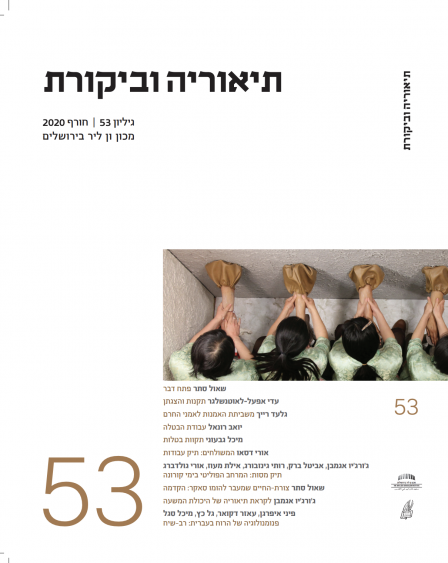תקנות והצגתן: לקראת חידוש מחשבת האמנות
עדי אפעל-לאוטנשלגר
המאמר מציע להתבונן במעשה האמנות במושגים של פעולה וייצור. הצעה זו נשענת על ההבנה כי לשם דין וחשבון מהותי על מעשה האמנות ועל המורכבות של מציאותו, אין די באסתטיקה. בעקבות אבחנותיו של ז'אק רנסייר, המאמר חוזר אל קווי המתאר של ה"פוייטיקה" האריסטוטלית בניסיון לחזור להבנה של מעשה האמנות לפני עלייתו של המשטר האסתטי. במסגרת זו עולים אל קדמת הבמה לא רק אופיו היצרני של מעשה האמנות, אלא גם אופיו התקנתי: מעשה האמנות נחשב כאן כתקנה (habitude) של המציאות האנושית. לצורך הפעולה הרקונסטרוקטיבית של המאמר משמשת מסורת המכונה "המחשבה של הספיריטואליזם הצרפתי" – בעיקר כתיבתם של שני הוגיה המרכזיים, פליקס רבסון-מוליין ואנרי ברגסון – המציעה כלים למחשבה של פוייטיקה שכזאת. לשני הוגים אלו הייתה גישה ייחודית להבנת התקנות המרכיבות את המציאות בכלל ואת המציאות האנושית בפרט. לבסוף, המאמר מציע כי המודל של "הצחוק" שהציע ברגסון יכול לפתוח צוהר להבנת מעשה האמנות על הבסיס הפוייטי של התקנותתקציר בעברית של המאמר


